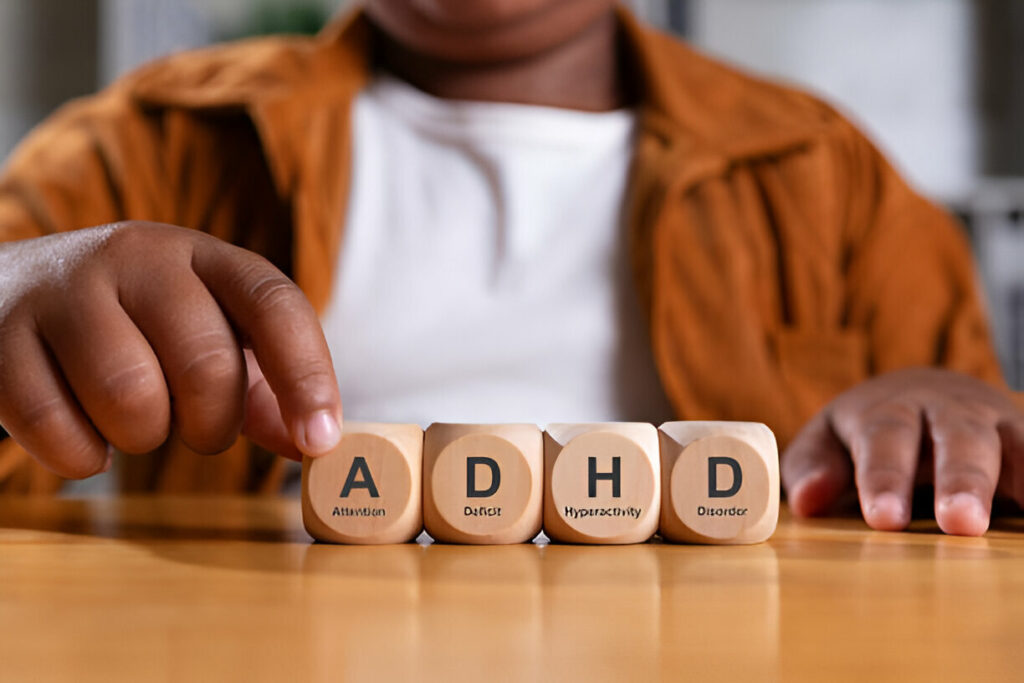
Attention-Deficit/Hyperactivity Disorder (ADHD) is often stereotyped as a childhood condition marked by hyperactivity or poor school performance. But in reality, ADHD frequently persists into adulthood—and many adults live with it unknowingly. If you’ve ever felt chronically disorganized, easily distracted, or emotionally overwhelmed, you might be asking yourself: “Can I have ADHD and not know it?”
The answer is yes. ADHD is commonly underdiagnosed in adults, particularly in women and people of color, where symptoms are more likely to be misunderstood or minimized. Here are seven subtle signs of undiagnosed adult ADHD you might be missing—and what you can do next if they resonate with your experience.
1. You Constantly Lose or Misplace Things
Everyone misplaces their keys once in a while. But if you’re frequently losing your wallet, phone, or even forgetting appointments, this might be more than forgetfulness. Chronic disorganization is a hallmark ADHD symptom, often linked to working memory challenges.
According to Healthline, forgetfulness in ADHD goes beyond the occasional slip and can significantly affect daily life.
2. You Interrupt Others or Struggle to Wait Your Turn
Do you find yourself speaking over others in meetings or jumping into conversations before the other person finishes their thought? This isn’t just a social quirk—it’s often due to impulsivity, one of the core traits of ADHD. In adults, this can create friction in both professional and personal relationships.
3. You’re Easily Bored and Need Constant Stimulation
If you feel uncomfortable when you’re not multitasking, fidgeting, or doing something stimulating, ADHD could be a reason. Adults with ADHD often crave novelty and stimulation, which is why tasks like paperwork or long meetings can feel nearly impossible to sit through.
Learn more from CHADD’s adult ADHD guide.
4. You Struggle With Time Management and Procrastination
Deadlines sneak up on you. You underestimate how long things take. You wait until the last possible moment to get started. These aren’t just productivity issues—they can be signs of time blindness, a common experience in ADHD that makes it difficult to plan and execute tasks on time.
5. You Experience Intense Focus (a.k.a. Hyperfocus)
One of the most misunderstood ADHD symptoms is hyperfocus—getting so locked into an activity that you tune out the world. You may spend hours working on a hobby or scrolling your phone, only to emerge feeling like time disappeared. While it may seem like a superpower, it often disrupts balance and productivity.
Wikipedia notes that hyperfocus is especially common in ADHD and can mask the disorder’s more disruptive symptoms.
6. Emotional Sensitivity and Mood Fluctuations
Do you overreact to small frustrations or feel emotionally overwhelmed without warning? ADHD can make emotional regulation difficult, leading to strong mood swings, irritability, or sensitivity to criticism. These patterns are often mistaken for anxiety or depression.
WebMD highlights emotional dysregulation as one of the lesser-known but significant aspects of ADHD in adults.
7. You Feel Mentally Drained—Even Without “Doing Much”
Living with undiagnosed ADHD is exhausting. Trying to focus, stay organized, and manage day-to-day demands without proper support often leads to mental fatigue. If you frequently feel worn out by simple tasks or question your productivity despite being busy all day, ADHD may be the underlying cause.
Why ADHD Often Goes Undiagnosed in Adults
ADHD can be difficult to recognize in adults because it doesn’t always manifest as hyperactivity. Instead, it might look like:
- Chronic lateness
- Low motivation
- Trouble finishing tasks
- Trouble prioritizing or managing bills
Many adults assume their struggles are due to personal failure or burnout. But understanding how ADHD presents in adults is the first step toward clarity—and relief.
What to Do if You Suspect You Have ADHD
If these signs sound familiar, you’re not alone—and you don’t have to figure it out on your own. Here are actionable steps to take:
- ✅ Take a Free ADHD Test: This quick self-assessment can give you a preliminary understanding of your symptoms.
- 💻 Explore Telehealth ADHD evaluations: Receptive offers online ADHD assessments, diagnosis, and treatment—all from the comfort of your home.
- 📚 Read trusted health sources: Platforms like Healthline, Mayo Clinic, and WebMD provide detailed, evidence-based information on ADHD in adults.
FAQs
1. Can adults develop ADHD later in life?
ADHD doesn’t begin in adulthood, but symptoms may only become obvious when life demands exceed your ability to cope. Stress, parenting, or career shifts can spotlight previously unnoticed challenges.
2. Is ADHD in women different than in men?
Yes. Women are more likely to experience inattentive symptoms, such as internal distraction or emotional sensitivity, rather than the hyperactive behaviors seen in boys. As a result, women often remain undiagnosed or misdiagnosed with anxiety or depression.
3. Can I treat ADHD without medication?
Absolutely. While medication can be life-changing for many, therapy, coaching, mindfulness, and behavioral tools also play a vital role in managing ADHD. The best approach is often a combination tailored to your needs.
Final Thoughts
ADHD doesn’t always shout—it often whispers. If you’ve lived with a persistent sense of underachievement, overwhelm, or disorganization, it’s worth exploring whether ADHD could be the missing piece of the puzzle.✨ Start your journey with a free ADHD test or connect with an expert through online ADHD treatment. Getting the right diagnosis could change your life.











